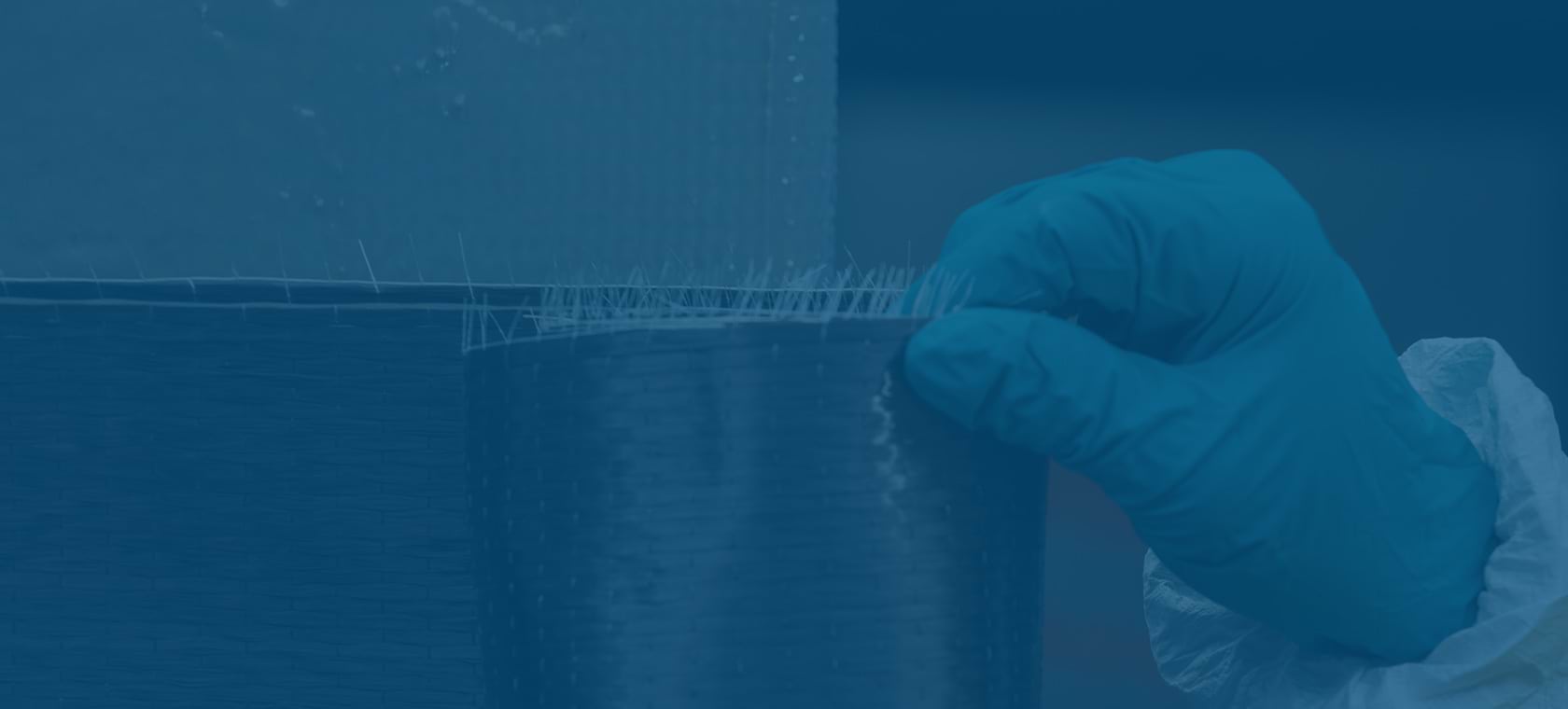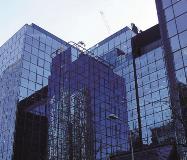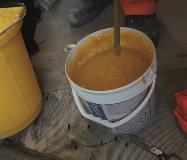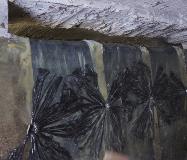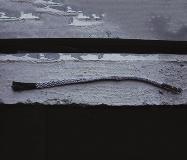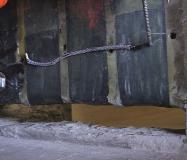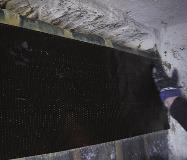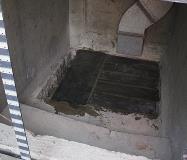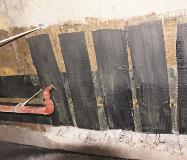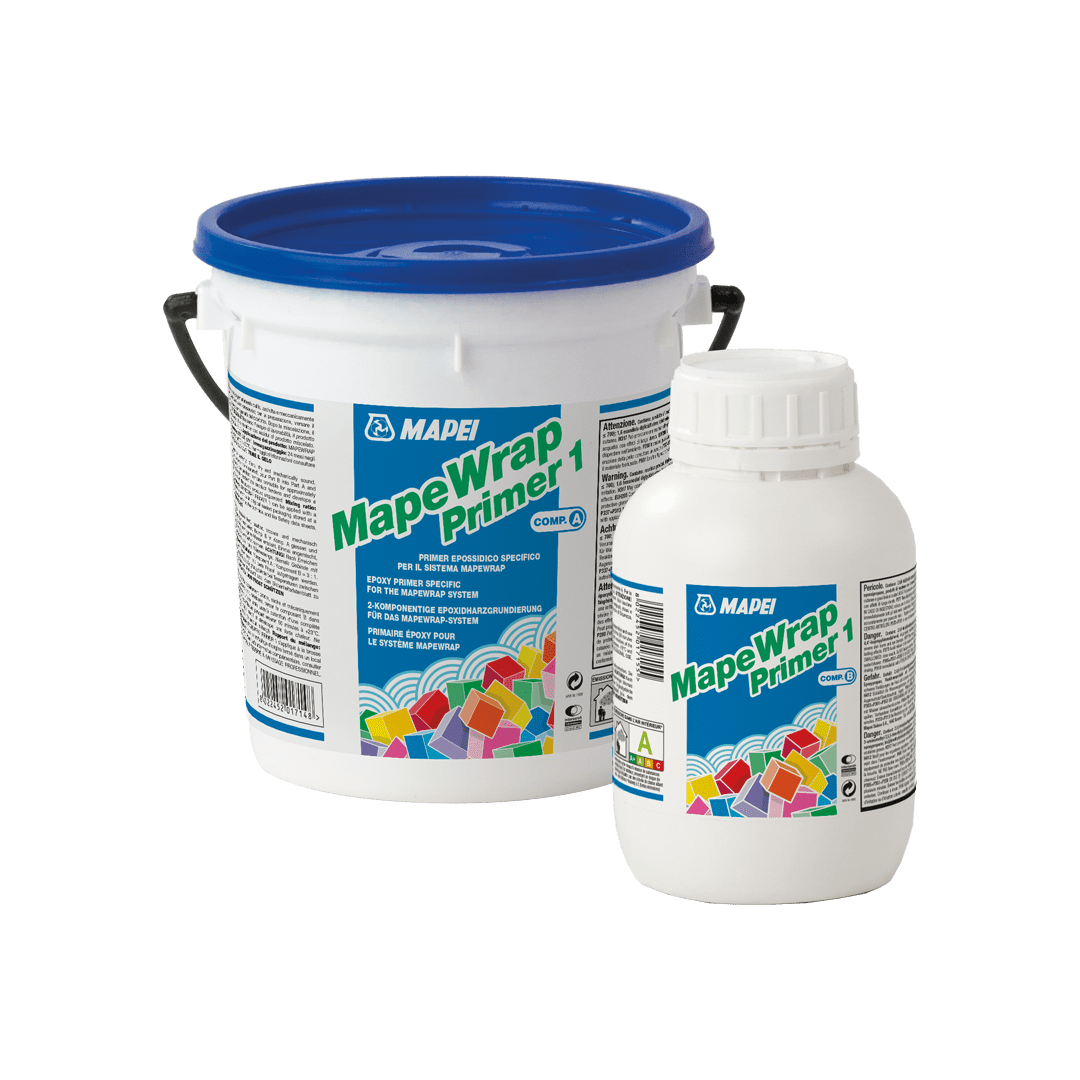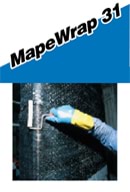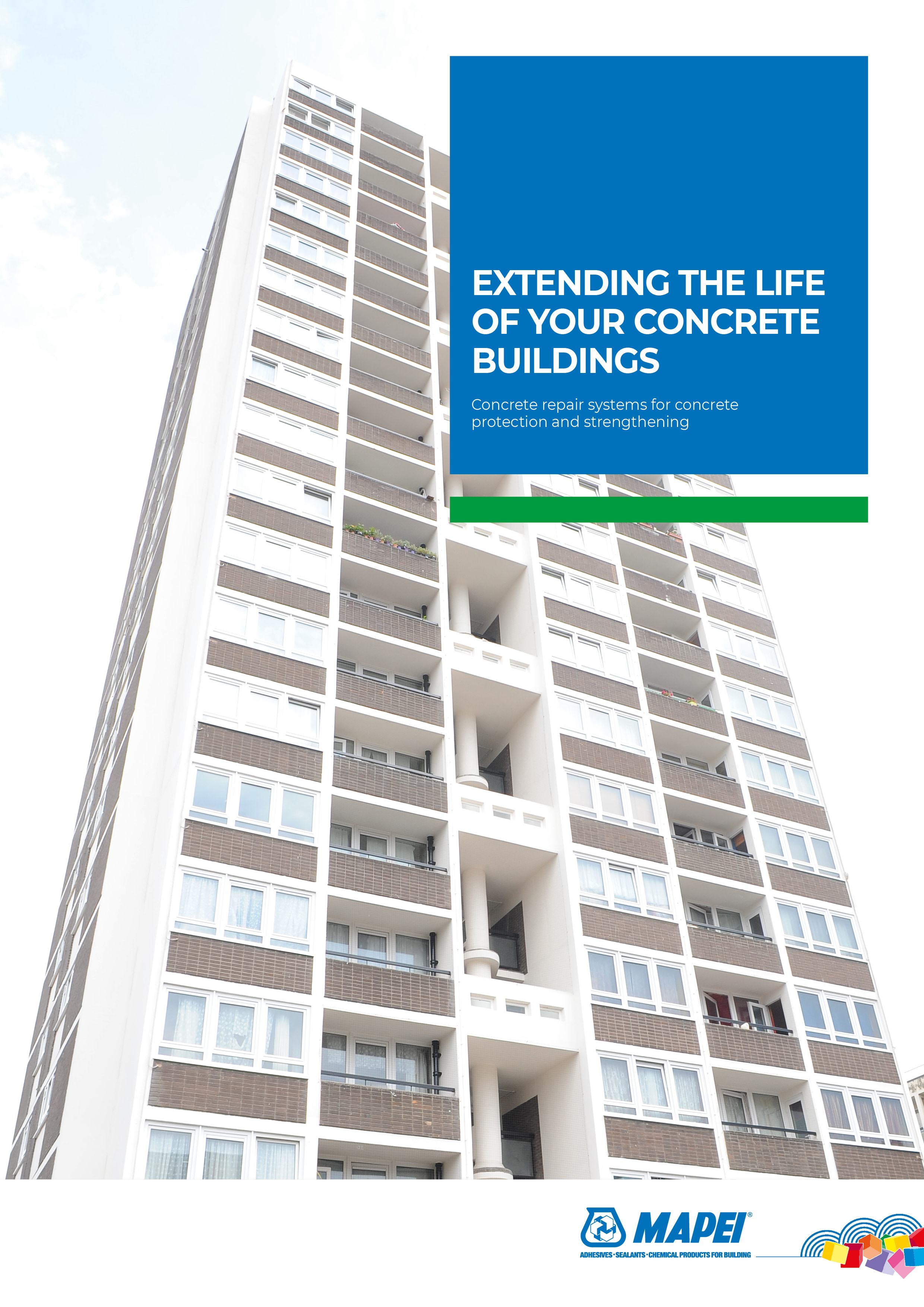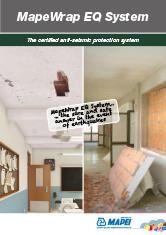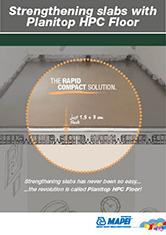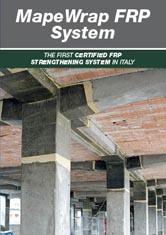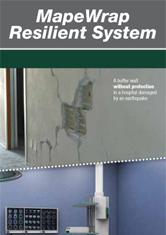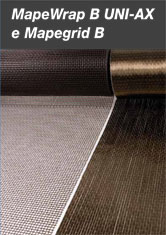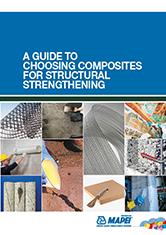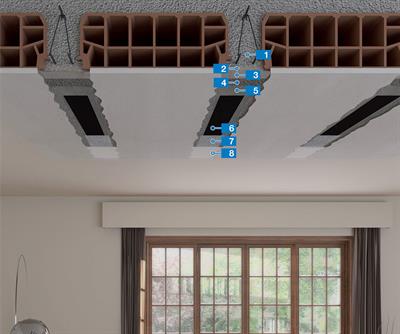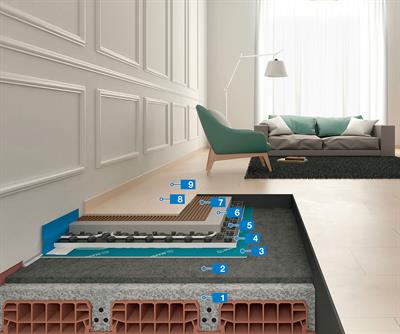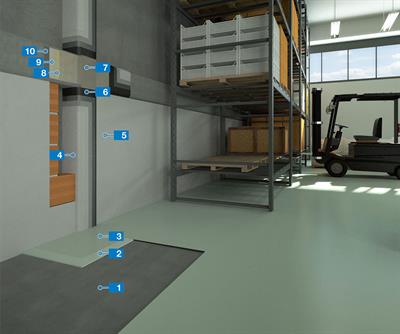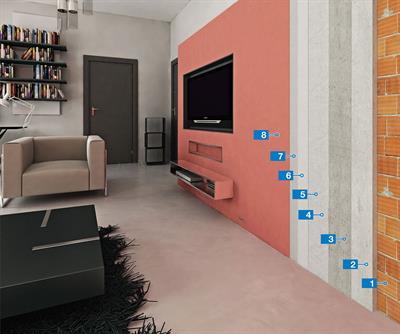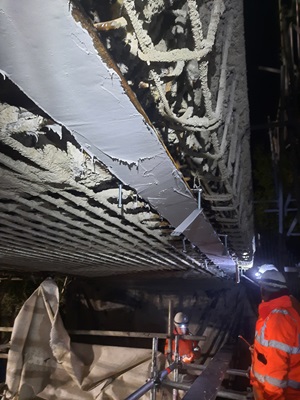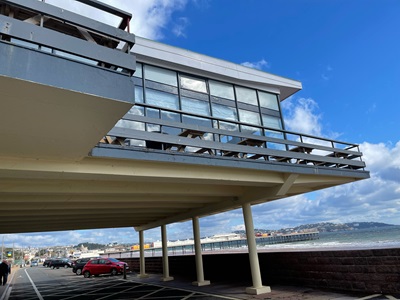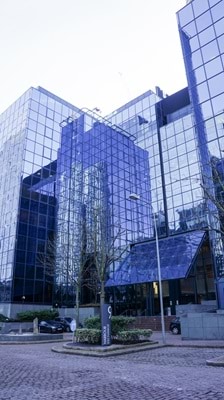Located near London’s Canary Wharf, The Harbour Exchange Tower is a distinctive 17-storey office complex constructed as two buildings split down the middle whilst still sharing a common foundation. Due to a refurbishment of the electric system to the HEX 8 section of the complex, an opening was required through an existing post-tensioned (PT) slab on the 9th floor of the building. Mapei were asked by the contractors, Freyssinet, to look at a possible solution using Mapei’s extensive range of Reinforced Fibre Composite materials, that would redistribute the loads around the holes cut through the 280mm thick PT slab.
Information on the required loadings and from surveys carried out by the contractor confirmed the location of the existing track tendons and reinforcement. Mapei’s composite engineer submitted a strengthening solution utilising Mapewrap C UNI-AX 300 and the Mapewrap C Fiocco system. Mapei supported their recommendation by providing a design report and drawings which allowed the contractor to propose the solution to the client and engineers. Once the design was approved and checked by the engineers the work on site could proceed.
As the concrete around the encompassing tendons was working against the PT force, one challenge was to confine the concrete allowing the PT to remain effective. New holes were created along the tendons, confinement was lost, and with the edge of the new opening close to the tendons, spalling stresses became another challenge. To strengthen the slab, Mapei recommended a solution that ensured the confinement effect around the tendons was not lost, and this was resolved by axial strengthening the slab around the tendons.
The design was based on Mapewrap C UNI-AX 300, a high strength unidirectional carbon fibre fabric with very high modulus of elasticity, and Mapewrap C Fiocco, a unidirectional high strength carbon fibre cord for systems. Mapewrap C Fiocco was used to make “structural connections” between the two sides of the slab.
To avoid any loss of stress in the PT tendon, Freyssinet installed Mapewrap C UNI-AX 300 in stages, enabling the tendency of the slab to expand under axial load to put in the Mapewrap Carbon Fibre in tension.
Before proceeding with the sequence of cuts into the concrete, the PT tendons needed to be tracked, and longitudinal strips of Mapewrap C UNI-AX 300 were applied underneath the slab as flexural strengthening following the position of the PT cables. Once completed, 12mm diameter holes were drilled through the slab, in predetermined locations, allowing the Carbon Fibre anchoring system to be installed at a later stage of the works.
The installer was then able to start with a sequence of five cuts made in two different stages. After each cut, the area of the slab requiring strengthening was prepared, primed and covered with the carbon fibre strips saturated with Mapewrap 31.
The carbon fibre strips were applied transversely to the direction of the hole, from the top to the bottom of the slab, and folded though the hole. Once the sequence of cuts was completed, holes were predrilled and Mapewrap Primer 1 was applied. The predrilled holes were then filled with Mapewrap 31 adhesive. The Mapewrap C Fiocco cord was then inserted into the hole, creating 150mm of cord at the ends of the hole which was then splayed out evenly around the hole and completely encapsulating with previously applied Mapewrap 31 adhesive.
The short installation period of 8 days allowed the critical works to be carried out in the client’s narrow window of opportunity. Freyssinet’s planned site operations minimised health and safety risks; sheeting of the enclosure and dust extraction equipment was used during the surface preparation operation.
The use of Mapei’s range of carbon fibre solutions was ideally suited to the time-critical strengthening project due to the speed of installation compared to alternatives, as well as being suitable to live or near-live environments such as the Harbour Exchange Building. Due to the properties of the Mapei products used, the installation caused minimal disruption with noise and dust virtually eliminated by Freyssinet during installation.
(Images Courtesy of Freyssinet)















